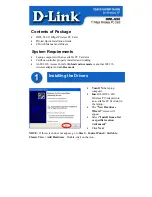
Alarms Commands
www.3ware.com
109
sched selftest
cid
disable
selftest_task_id
This command disables a particular selftest task (UDMA or SMART). For the
selftest_task_id, s0 is interpreted as UDMA, s1 is interpreted as SMART.
For example:
//localhost> tw_cli sched selftest c1 disable s1
Disables SMART selftest on controller c1.
Alarms Commands
The
alarms
command provides a log of alarms, also called Asynchronous
Event Notifications (AENs), that have occurred on the disk arrays. An alarm
occurs when the ATA RAID controller requires attention, such as when a disk
array becomes degraded and is no longer fault tolerant. SMART notifications
appear in this display. Alarm messages are categorized by the following levels
of severity:
Errors
Warnings
Information
When the
alarms
command is executed, only AENs that have been logged
since the last time the command was executed are displayed. For Linux,
AENs are also saved in a text file at
/var/log/messages
.
Windows users can see the AEN messages in the Windows System Event
Logs that can be seen in the Event Viewer.
Asynchronous events are originated by firmware and captured by their
respective device drivers. These events are kept in a finite queue inside the
kernel, awaiting extraction by user programs such as CLI or 3DM 2. These
events reflect warning, debugging, or informative messages for the end user.
Alarms generated on 7000/8000 models do not have dates, so a dash (-)
meaning
not-applicable
appears in the Date column. Also on 7000/8000
models, the alarm message does not contain the severity, hence the Severity
column displays a dash (-) as well.






































